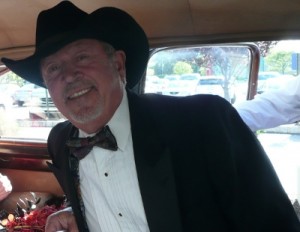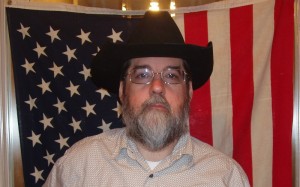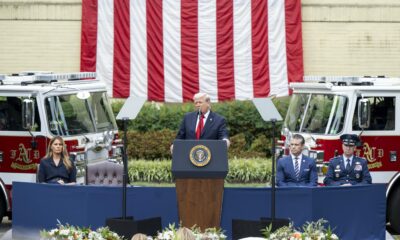Constitution
Health care reform bill Supreme challenge

Two New Jersey activists challenging the health care reform bill as unconstitutional will now take their challenge to the Supreme Court.
Nicholas E. Purpura of Wall Township, NJ, and Donald R. Laster Jr of West Long Branch, NJ, filed a petition for a writ of certiorari to the United States Supreme Court. They also filed a motion to expedite their case. They hope to have the Court consider their case, in their scheduled November 10 administrative meeting. The court has several cases challenging the health care reform bill now before it. Court observers expect the Court to decide, at that meeting, which cases they will hear and which not.
A comprehensive challenge to the health care reform bill
The case of Purpura v. Sebelius is by far the most comprehensive lawsuit that anyone has filed against the health care reform bill. It says that the bill is unconstitutional for fifteen separate reasons. These reasons begin with the simple fact that the bill originated in the Senate and not the House of Representatives. But the most explosive count is Count Six: that Barack H. Obama, who signed the bill into law, was never authorized to do so. The reason: his father was an alien, and he is not a natural-born citizen.
The Federal District Court in New Jersey ruled that Purpura and Laster lack standing. The court held that they had not shown an injury in fact that the health care reform bill would do to them. The Third Circuit agreed. But the two plaintiffs hope to show that both courts have violated the Federal Rules of Civil and Appellate Procedure on several counts. Hence their Supreme Court challenge.
Their case would compete for the Court’s attention with several other cases. Chief among these is Florida ex rel. Bondi et al. v. HHS et al. In that case, 26 States allege that the “minimum coverage mandate” overextends the Commerce Clause. Judge Roger Vinson of the North Florida District Court so ruled, and then held that the entire health care reform bill fails for non-severability.
Purpura and Laster have never felt that severability alone was enough to strike down the health care reform bill. They point out in their petition that no other case raises as many as 15 violations of the Constitution and other laws (that the bill did not revise). More to the point, Purpura v. Sebelius raises many counts that no other case raises. The citizenship and Senate-origin counts are but two of them.
Extraordinary circumstances
The two plaintiffs face a challenge of their own. On October 27, all the Justices of the Supreme Court received briefs on many cases on the health care reform bill. On November 10 (one day before Veterans’ Day, a court holiday), the Court will hold its regular end-of-the-week administrative meeting. In that meeting (behind closed doors), they will decide which of those cases they will hear, which they will not, and whether and how to consolidate the cases for judicial economy.
Normally, a certiorari petition to the Supreme Court goes before a magistrate, and then before one or more panels. They decide which cases will ever reach the nine Justices in their chambers. As Purpura explained to CNAV this evening, the Supreme Court receives 10,000 petitions or appeals a year.
But under Rule 21 of the Rules of the Supreme Court, any petitioner (or respondent) may file a motion with the Court, before it would hear oral argument. (The Supreme Court does not ordinarily hear motions in open court.) This includes a motion to expedite the review of a case. Such a motion bypasses the usual review process and goes before the Justices.
Even then, a movant must normally file 40 copies of his motion, in booklet form. (Rule 33 sets out the formats that the Court accepts.) But Purpura and Laster have also filed an affidavit asking leave to proceed in forma pauperis (literally, in pauper’s form), as per Rule 39. If the court grants that, then it:
- Waives the usual fees ($450 to file the petition, for example), and
- Allows them to file an original and ten copies of their motion (see Rule 12), on letter-sized paper, not in booklets.
Purpura explained to CNAV that by the time he completed the kind of printing project that the usual rules require, the November 10 meeting would be over. But if the Justices can see their pleadings at their November 10 meeting, they might decide to hear their case as the main case, on account of the sheer number of challenges including unique challenges, that it raises.
Furthermore, their motion-to-expedite argues that a citizen should not have to pay to have the Court hear a Constitutional challenge:
The U.S. Supreme Court has ruled that a natural man or woman is entitled to relief for free access to its judicial tribunals and public offices in every State in the Union (2 Black 620, see also Crandell v. Nevada, 6 Wall 35). Plaintiff should not be charge[d] fees, or costs for the lawful and constitutional right to petition this court in this matter in which he is entitled to relief, as it appears that the filing fee rule was originally implemented for fictions and subjects of the State and should not be applied to the Plaintiff who is a natural individual and entitled to relief; Hale v. Henkel (201 U.S .43)
Featured image: the Constitution of the United States. Photo: National Archives
Related:
- Privacy violations
- Setback
- Opposition brief
- Revised motion
- Legal confusion
- Frustration
- More motions
- Recusal motion
- Default motion
- Appeal skirmish
- Commerce, health care, and distortion
- Plaintiffs seek injunction
- Appeal delayed
- Plaintiffs have standing after all
- DOJ wants more time on HCR appeal
- Another appeal
- Hazardous to your health
- Court dismissal
[amazon_carousel widget_type=”ASINList” width=”500″ height=”250″ title=”” market_place=”US” shuffle_products=”True” show_border=”False” asin=”B00375LOEG, 0451947673, 0800733940, 0062073303, 1595230734, 1936218003, 0981559662, 1935071874, 1932172378″ /]
Terry A. Hurlbut has been a student of politics, philosophy, and science for more than 35 years. He is a graduate of Yale College and has served as a physician-level laboratory administrator in a 250-bed community hospital. He also is a serious student of the Bible, is conversant in its two primary original languages, and has followed the creation-science movement closely since 1993.
-

 Accountability3 days ago
Accountability3 days agoWaste of the Day: Principal Bought Lobster with School Funds
-

 Civilization7 hours ago
Civilization7 hours agoWhy Europe Shouldn’t Be Upset at Trump’s Venezuelan Actions
-

 Executive1 day ago
Executive1 day agoHow Relaxed COVID-Era Rules Fueled Minnesota’s Biggest Scam
-

 Constitution2 days ago
Constitution2 days agoTrump, Canada, and the Constitutional Problem Beneath the Bridge
-

 Civilization1 day ago
Civilization1 day agoThe End of Purple States and Competitive Districts
-

 Christianity Today7 hours ago
Christianity Today7 hours agoSurprising Revival: Gen Z Men & Highly Educated Lead Return to Religion
-

 Civilization5 days ago
Civilization5 days agoThe devil is in the details
-

 Executive20 hours ago
Executive20 hours agoWaste of the Day: Can You Hear Me Now?













[…] challenging the constitutionality of the health care bill signed by Obama in March 2010 have petitioned the U.S. Supreme Court for a Writ of Certiorari, citing “Extrodinary [sic] Circumstances […]